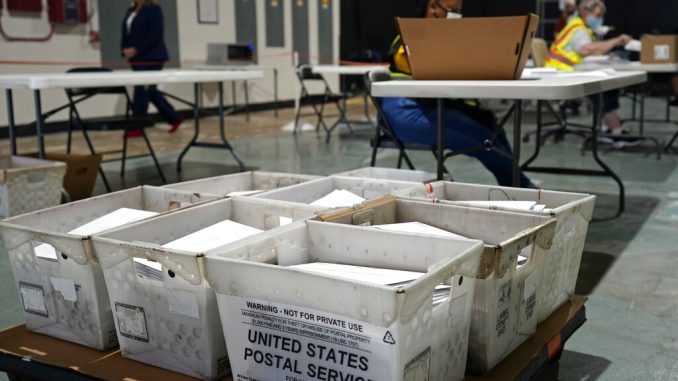
RALEIGH — A Wake County judge on Friday approved a settlement agreement made last week that was met with a furor and caused two Republican N.C. State Board of Elections members to resign in protest.
The NCSBE struck a deal last week with the North Alliance for Retired Americans allowing absentee by-mail ballots to be accepted through Nov. 12 instead of Nov. 6, eliminated the witness requirement, and changed the definition of a postmark – in effect allowing ballots with incomplete or incorrect information to be counted.
The decision by Wake County Superior Court Judge Bryan Collins, a registered Democrat who is also married to N.C. Court of Appeals Judge Allegra Collins, to approve the agreement also means county election officials can send voters an affidavit instead of following the traditional absentee process. Voters previously needed to send an entirely new ballot to correct issues with incomplete witness information. Already under state law passed this year, North Carolina voters this election cycle must have one witness sign off on their ballot for it to be counted. In other election years, two witnesses are needed.
The state elections board announced Thursday it would halt plans to send out affidavits as the settlement makes its way though the courts. Two federal cases are also pending.
When it announced the settlement on Sept. 22, the state board said that the rule changes should be implemented by county boards immediately based on emergency powers it argued its executive director had under state law. Collins sided with the board on Friday, saying it had the authority to implement the changes in the middle of the coronavirus pandemic.
Republicans argued in court on Friday that the settlement effectively eliminates the witness requirement and undermines authority that should be held by state lawmakers.
The alliance, a left-leaning group represented by Washington, D.C. Democratic lawyer Marc Elias, had filed the lawsuit as part of Democratic-led efforts to loosen absentee ballot rules in multiple states.
Collins dismissed GOP allegations that Democratic board members colluded with Attorney General Josh Stein when directing counties to send out affidavits.
“It is not illegal,” Collins said. “It is not a product of collusion,” the Democratic judge said.
Senate Leader Phil Berger (R-Eden) said that Collins’s ruling was unsurprising, and highlighted his previous efforts to undo actions taken by the General Assembly.
“A bipartisan supermajority agreed on the law governing this election months ago. The secretive effort by Attorney General Josh Stein and the N.C. State Board of Elections to rewrite that law while voting is underway is wrong, inappropriate, and creating chaos,” Berger said. “Judge Collins, who issued a ruling last year trying to deem the entire legislature a ‘usurper body,’ unsurprisingly sided with unelected Democrats in their effort to rewrite election law while voting is already underway. We expected this to happen and will immediately appeal. Collins’s lawless ruling last year was overturned unanimously on appeal, and we expect the same result this time.”
Berger also said, “we will not stop fighting to uphold the law, which a bipartisan supermajority enacted earlier this year, that protects against absentee ballot fraud.”
The Associated Press contributed to this report.



